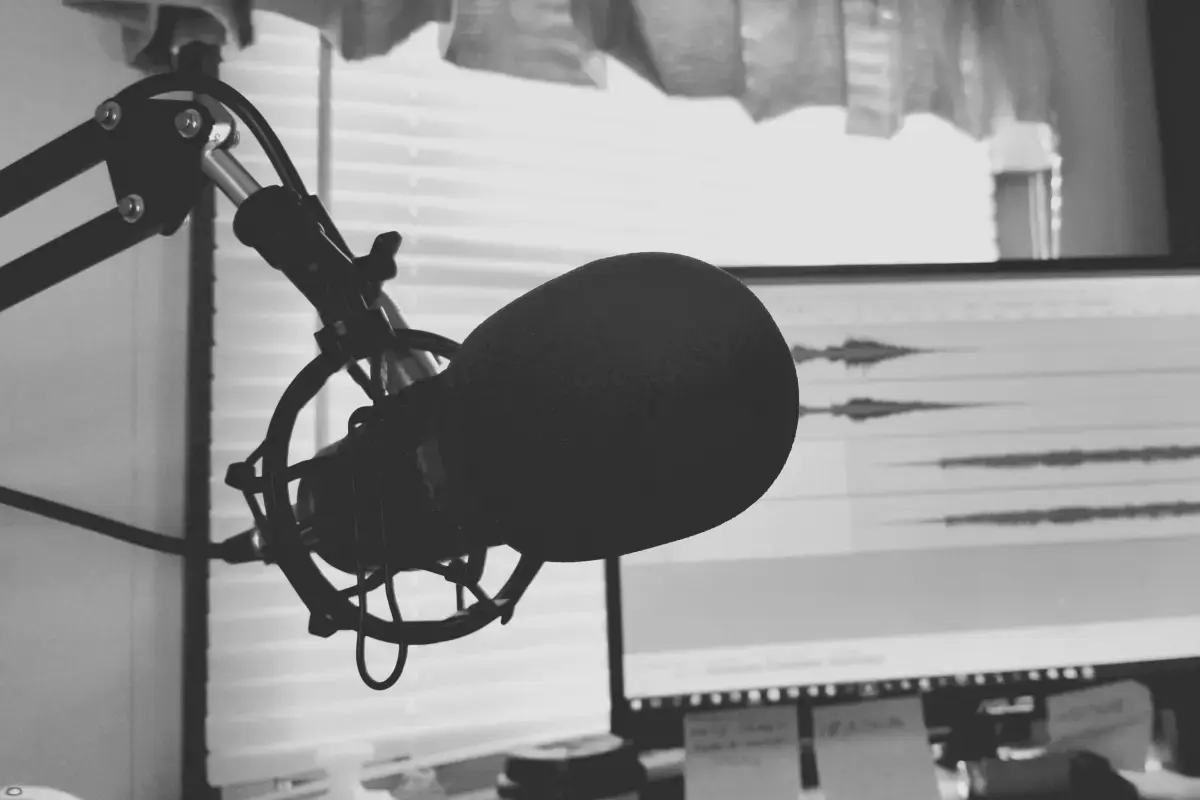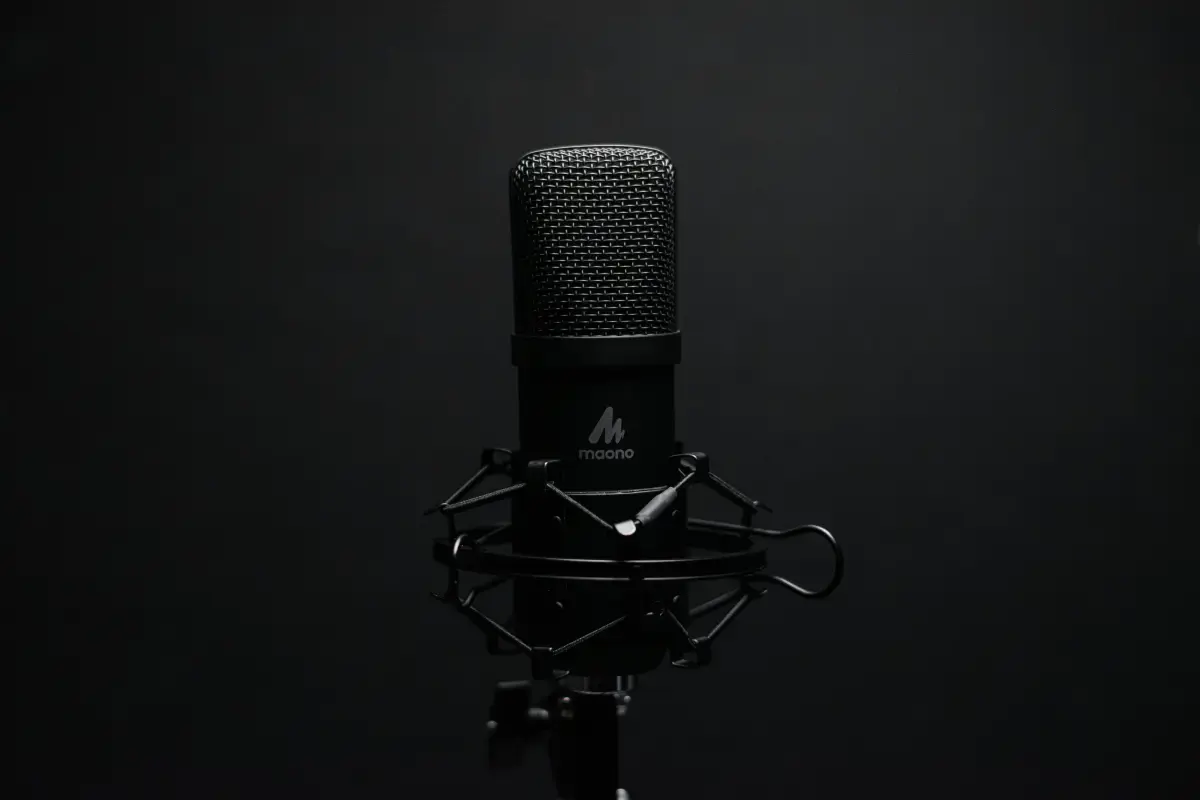
Boom Operator Job Description
What is a Boom Operator Professional?
A boom operator is a technician responsible for operating the microphone boom during the production of a film, television program, or other audio-visual presentation. The primary duty of a boom operator is to position the microphone so that it picks up the desired sound while minimizing unwanted sounds such as camera noise and ambient room noise. Boom operators typically work closely with the shows sound mixer to ensure that all dialogue and sound effects are captured clearly. Boom operators must have a strong understanding of acoustics in order to properly place microphones. They also need to be able to troubleshoot problems quickly and effectively if there are issues with Audio quality.

What does a Boom Operator Expert do?
During outdoor shoots, weather can be another factor that needs to be taken into account when setting up equipment. Boom operators need physically stamina since they often have long days on set and may have to carry heavy gear between locations

What are the Skills of a Boom Operator?
A boom operator is a professional who operates the microphone boom in film and television productions. They are responsible for ensuring that the actors’ voices are captured clearly and without any background noise. Boom operators must have excellent hearing, as they need to be able to distinguish between different sounds on set. In addition, they need to have good hand-eye coordination in order to efficiently move the microphone around while still maintaining a clear recording. Boom operators typically start their careers working in local TV or radio stations. From there, they may move on to work as freelance sound professionals on independent films or major Hollywood productions. Some boom operators also choose to teach at audio engineering schools or become sales representatives for audio equipment manufacturers. The most important skill for a successful career as a boom operator is being able to listen carefully and understand what people are saying amidst all of the activity going on around them during production shoots

What makes an Expert Boom Operator?
Other essential skills include: • Superior organizational abilities - Work can often be chaotic with numerous takes happening simultaneously; thus its imperative that an Effective Boom Operator possess top-notch organization skills so crucial recordings arent missed • Strong physical stamina - Since much of work time will be spent crouching, kneeling or standing over actors shoulders holding heavy equipment aloft, having significant endurance is critical • Being proactive vs reactive - Proactively making suggestions about miking techniques/ideas based upon years of experience rather than just waiting reactively for someone else (iDirector/Producer)to make decisions which could result less than optimal results recorded stores your cached data locally whereas memory refers more broadly

What level of Experience & Qualifications are required to be a Boom Operator?
Industry Experience: At least 5 years of experience as a boom operator in film, TV, or video production; strong technical skill set and knowledge of audio and video production equipment. • Training: Professional training in sound recording on location including handling/operating a boom microphone, rigging devices for outdoor shoots, setting up and tuning speakers/mixers to produce desired effect etc. • Qualifications: Certification from an accredited school with a major emphasis in audio engineering or production is preferred for more specialized skillsets such as recording with multiple microphones simultaneously. • Education: Associates degree in broadcast media technology or similar field is typically required; Bachelors degree preferred. Must have the ability to learn quickly and stay up-to-date on new technologies and techniques used within the industry.

What is the Salary of a Boom Operator?
The salary range for a boom operator depends on experience, location and the company they are working for. At the junior level, starting out in the field, boom operators typically earn between $15 and $19 per hour. This rate of pay may increase with years of experience to an average hourly rate ranging from $17 to $22 per hour. At higher levels of expertise and managerial roles, a successful Boom Operator will begin to earn more and can expect salaries ranging from approximately$23-30 an hour or annual salaries up to around$50K depending on the production studio they are employed by and their project load. At this level Boom Operators may also be eligible for raises based off efficiency bonuses or job longevity gives them additional compensation separated from their base pay too. Senior Boom Operators as well as specialists in certain sound equipment fields including filming with large budgets can routine command wages somewhere between$30-40+ per hour or up to around 110K annually with benefits such as health insurance packages included depending again on their work location/client base..

What are the Working Conditions for a Boom Operator?
A boom operator is responsible for setting up and operating the microphone booms used during film or television production. This involves hanging, placing, and aiming of sound microphones on long poles to capture sounds directly from their source. They often work with headset radios in order to take direction from the sound mixer and director so that microphones can be repositioned quickly during shooting. Boom operators need a good knowledge of audio equipment, an understanding of how sounds travel through space, as well as a general understanding of cameras and filming techniques. In addition to setup and operation responsibilities, boom operators must ensure that recorded sounds are completely free from any unwanted noise or interfering sounds like footsteps or wind noise by using a silencer/damper when needed. During post-production they may be required to make minor adjustments in volume levels if needed in order to achieve perfect clarity and balance between foreground & background audio levels while adhering strictly to technical specs including those related timing requirements (dialogues must synch perfectly with lip movements). Generally speaking the working hours required vary greatly depending on production needs but generally range anywhere between 8-12 hrs per day (some days may even go longer depending on workload). Most productions are shot at various locations around town so transportation is usually provided for travel purposes (*there are also overnight stays*, depending on location!). Work conditions fluctuate according to environment; ideally it would involve some physical activity but can incorporate being confined indoors too! Last but not least – salaries usually constitute an hourly rate which depends heavily based upon qualifications/experience - ranging from $11-$25 per hour (can go higher too!).

What are the roles and responsibilities of a Boom Operator?
The boom operator is responsible for placing and operating the microphone booms used on a movie or television set.
The boom operator is responsible for ensuring that the microphones are properly positioned and secure, so that they can capture audio without being obstructed by other objects in the scene.
The boom operator is also responsible for holding cue cards or scripts near the camera during recording, so that actors know their lines while still performing their actions convincingly in front of the cameras. 4 Boom operators also typically perform basic sound mixing duties during post-production, such as equalizing levels and adding effects like reverb to dialogue tracks.
In some cases, especially on larger production sets where multiple crew members are assigned to different tasks, the boom operator may be asked to hold reflectors or other lighting accessories when needed
Another key responsibility of a good boom operator is making sure there’s minimal ambient noise bleed into shots – something which becomes even more important if Foley (sound effects) need to be added later down the line during post-production
It’s not uncommon for directors or producers to ask questions about shot locations too – after all, getting placement right goes hand-in-hand with reducing ambience contamination
When moving around etc., careful planning must take place beforehand so Associate Producers/AD’s can walk through various routes undisturbed
To avoid branches & leaves rustling against lav mics etc., lavalier mic clips should have windscreens attached
If necessary due …lest raindrops fall onto an exposed capsule
Placement often means standing in awkward positions….for long periods of time
Since headphones will most likely not stay put by themselves
More than one person might be using your services at any given moment
Be aware ref 1 how hot lights affect those you serve
And finally learn everyones name it makes life much easier plus breaks down barriers

Where can I find Boom Operator jobs?
- Create a profile on gigexchange and promote your Boom Operator skills to advertise you are Open to New Work Opportunities
- Ensure your Resume (or CV), or online work profile is up to date and represents your skills and experience. Ensure your reputation reflects your ability & attitude.
- Apply for Boom Operator Jobs advertised on gigexchange.
- Practise Boom Operator interview techniques to ensure you represent your personality and ability succinctly and confidently.
- Accept the job offer if the salary meets your expectations and the employer mission and purpose reflects your core values.
Jobs
What are the best job boards for First Assistant Sound jobs?

How can I hire Boom Operator staff online for my business?
The best job board for recruiting Boom Operator experts is gigexchange.com. Advertise full-time, part-time or contract jobs to find, hire & recruit trusted, experienced and talented Boom Operator candidates near you.

Are Boom Operator roles in demand in 2026?
Boom Operator experts are still in high demand in 2026. If you are an experienced Boom Operator or looking to train and become one. The job market is looking strong for Boom Operator jobs near me.